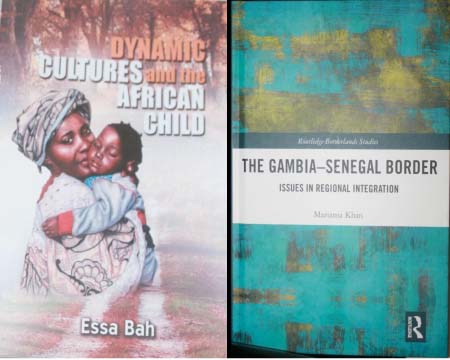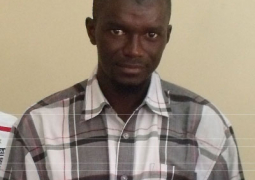
Two
Gambian writers, Mariama Khan and Essa Bah, in collaboration with the Writers’
Association of The Gambia (WAG), Saturday
launched their new books title: The Gambia-Senegal Border: Issues in
Regional Integration and Dynamic Cultures and The African Child.
Launching
of these latest works was held at the Gambia Tourism and Hospitality Institute
(GTHI), in Kanifing.
The
Gambia-Senegal: Issues in Regional Integration was written by a Gambian scholar
and University don Mariama Khan. The 225-page book was published by Routledge
and reviewed by Lamin BT Sanyang.
Mariama
Khan, who is currently teaching history at Lehman College, New York had earlier
published many works on aspects of Gambian literature, proverbs and film.
The
Dynamic Cultures and The African Child, written by Essa Bah, is a 70-page book
published by Fulladu publishers and reviewed by Cherno Omar Barry, President of
Writers’ Association of The Gambia.
Essa
Bah is a police officer with the Gambia Police Force and works in the Gender
and Child Protection Unit. His first published novel is entitled Mission
Accomplished.
In
general overview of the two books, Hassoum Ceesay, historian commended the two
authors for their works.
On
the book titled The Gambia-Senegal: Issues in Regional Integration, Mr Ceesay
said it stands out from the rest on Senegal-Gambia relations as it focuses on
the role, fate and experience of the small people in the relations between the
two brotherly countries.
He
commented on the book, saying, “Previous studies had put much emphasis on the
role of politicians in forging the links between the two countries. Here, Ms
Khan taps into a new vein by putting at the centre of her study the daily
experiences of men and women who lived along the borderlands of The
Gambia-Senegal or who cross through the border on a daily basis in pursuit of
trade, commerce, education or family relations. This is a new addition to
Gambian-Senegal studies.”
On
the second book written by Essa Bah, Mr Ceesay said the book will take readers
back to real African culture and tradition before the colonisation.
He
noted that the author has shown his concern in terms of unit and development of
Africa, and urged everyone to have the two books in their shelves because they
are both valuable and important.


